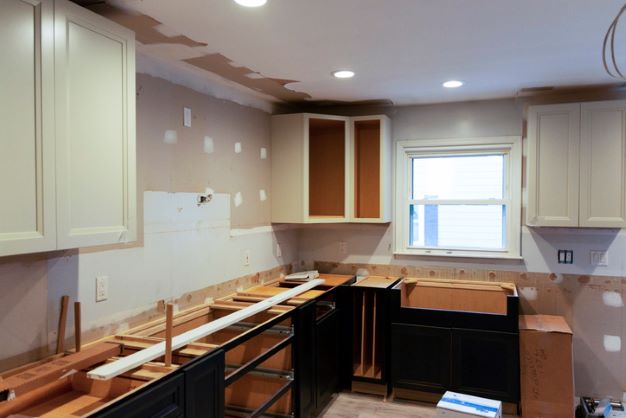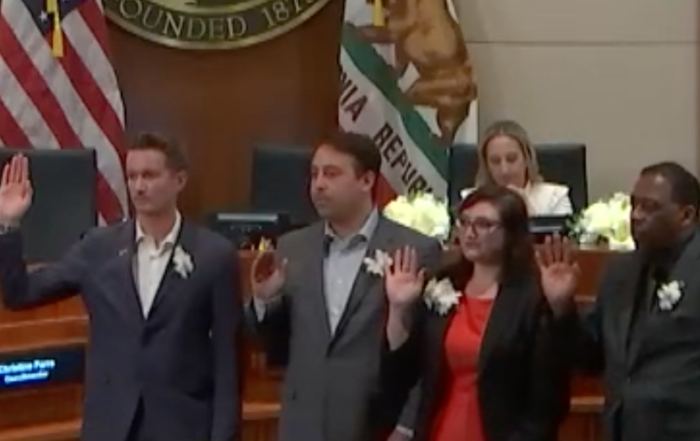On Tuesday evening, the Beverly Hills city council heard a recommendation from the city’s Rent Stabilization Commission (RSC) to remove a provision that allows landlords to evict tenants for a major remodeling of a rental unit.
The original intent of the provision, according to Helen Morales, who runs the RSC, was to incentivize property owners to maintain rental units while stabilizing rents and ensure habitability of units. However, Morales says that landlords complained they could not make major improvements due to rent caps, and renters countered that even when there were no rent caps, owners weren’t making improvements.
There was a substantial process in place to protect tenants, including requiring landlords to give them one year’s notice of the remodeling, the first right of refusal to return to the unit, pay relocation fees, and a limit on the rent increase after remodel of no more than 150 percent of base rent, though that would largely be determined by a hearing officer. Landlords are also required to remodel two or more units. They cannot single out just one unit for remodeling.
This right afforded to landlords had not been utilized since 2017. Therefore, the Rent Stabilization Division in the city had to decide between raising the major remodeling minimums allowed to landlords, which had not been updated since 2004, and given the dramatic increase in inflation, or whether to just eliminate the provision, which is what they’re recommending here. Evictions for major remodeling are not common, and Beverly Hills is the only city with a rent stabilization ordinance that even allows evictions for remodeling.
The Apartment Association of Greater Los Angeles (AAGLA) submitted a letter opposing the recommendation, arguing that there is no real crisis requiring a change, and backing landlords who do wish to initiate major remodeling. They also cited Assembly Bill 1482, which they say allows landlords the right to evict tenants in order to upgrade existing housing stock.
Also at issue is that this measure came to the RSC in August of 2020, and given the time lapse, Councilmember Sharona Nazarian asked why this was just coming to the city council now. Community Development Director Ryan Gohlich was on hand to explain that the RSC wanted to package this change with others that didn’t come to fruition and that the council had packed agendas with matters deemed more urgent given the number of cases of this kind of eviction were few. Plus, according to Morales, the city had largely been under a COVID-based eviction moratorium for most of the last two years, rendering this provision moot.
Councilmember John Mirisch made some comments that suggested he’s pleased landlords can’t simply use the “remodel loophole” to evict tenants in order to go to market rate, and that a hearing officer stands in their way of abusing this right to evict. But he did express concern about the city’s reported eight percent vacancy rate among rental units. Ms. Morales acknowledged that is the highest rate she’s seen since coming to work for the city in 2017. Mirisch asked if the eight percent includes units being used for “AirBnB purposes,” which Morales affirmed it does not.
Mirisch did say he wants his council colleagues to come back to the AirBnB issue, saying, “There are unfortunately a number of units being used for AirBnB; we don’t allow that, and we need to do a better job of cracking down on that.”
Vice Mayor Julian Gold asked whether the current rules are truly protective of tenants, suggesting landlords may just work around the requirements by kicking out their entire building for a complete remodel instead of doing two or three units at a time. “Particularly for smaller units, if you have a four-unit or a six-unit building, it’s probably cheaper to tear the whole thing down” said Gold, rather than go through the process of paying relocation fees to tenants. He added, “I’m kind of wondering if we’re creating an unintended consequence that could hurt people.”
Mayor Lili Bosse asked city staff, “What would be the reason not to implement this? Give me the negative,” to which Mr. Gohlich responded that it could mean fewer units are remodeled in the future, but admitted, “I don’t believe that is a real legitimate concern because units do get remodeled or refreshed over time as they are vacated.”
Gold returned to suggest it is important to know where the eight percent vacancies are in the city, and wondered what if a majority of the vacancies are empty because they are in poor shape and require a remodel.
Most members of the council concluded they needed more information, and that the city needs to do a better job collecting data on vacancies. But, they ultimately agreed to follow the RSC’s recommendation to eliminate the remodeling loophole for landlords by a unanimous 5-0 vote.
Photo by WoodysPhotos
Stay informed. Sign up for The Westside Voice Newsletter
By clicking submit, you agree to share your email address with Westside Voice. We do not sell or share your information with anyone.








